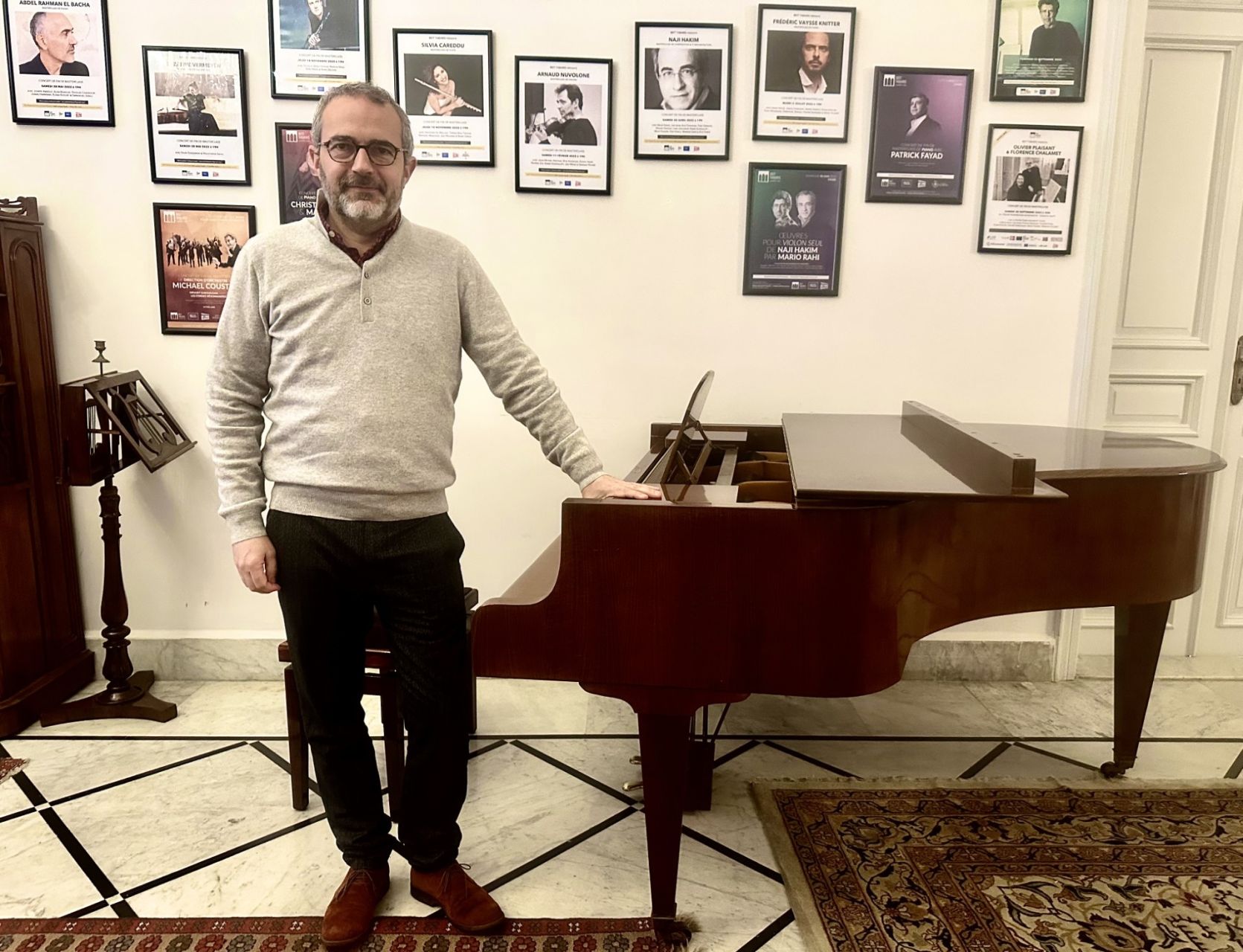
After his first visit to Lebanon in 2014, French tenor David Lefort returned to the Land of the Cedars, specifically to Beit Tabaris, to lead a vocal masterclass on French melody.
Between August 2024 and February 2025, Beit Tabaris was enveloped in a forced silence – one of waiting, anxiety, uncertainty and agony. The kind imposed by wars that crush souls and dictate their laws. Alas. Where, not long ago, music gathered souls, only the rubble of a broken harmony remained. Beirut, the eternal beloved, seemed to be quietly fading. Zeina Saleh Kayali, founder of this artist residence nestled in Beirut, refused to throw in the towel. Yet, the war had other plans. Her masterclasses? Canceled. The injustice? Intolerable. Music could not fall silent, nor could it yield to violence. But how could harmony be created when the country, and so many dreams and hopes, were collapsing? How could one teach when the scent of death lingered? Art was forced to step aside in the face of harsh reality.
A Redemptive Art
Today, as the war has ceased, Kayali hurries to reopen the doors of her musical salon, convinced that art must once again take its place and breathe new life into society, a reason to believe in beauty, despite everything. “Art is redemptive. It can heal the deepest wounds,” she asserts to Ici Beyrouth. “What Lebanon has experienced reminds me of certain films about the horrors of World War II. People would attend a play, and when bombings intensified and sirens rang, everyone would rush to the shelters, only to return as soon as the situation calmed down to resume the performance.” Supported by the French Institute of Lebanon and two other patrons, Beit Tabaris has been working for several years to ensure the sustainability of quality music and provide excellent education to the young musical generation, particularly through masterclasses led by French musicians. “These young musicians represent Lebanon’s future, and it is our duty to give them hope,” adds the Franco-Lebanese author.
French Melody
After a successful concert on February 7, performed by soprano Louisa al-Khoury and pianist Elena al-Khoury, Beit Tabaris hosted David Lefort, a seasoned French tenor, award-winning singer and permanent member of the Radio France Choir, to lead a week-long masterclass focused on French melody. So, what distinguishes it from other musical traditions, such as Italian and German? “French melody is very different from the German Lied,” explains Lefort. “It must be placed in its historical context, around 1860 to 1870, in the heart of the 19th century. It was, in fact, salon music. These salons were places where chamber music was played, but also vocal music accompanied by piano. Poetry recitation also held an important place there.” Thus, according to the tenor, the specificity of French melody lies in the intimate relationship between the text and the music, but also in the French language itself, which stands out particularly from German and Italian on a purely vocal level.
Delicacy and Preciousness
“Speaking of salon music, it’s important to mention that, before the melody, there was the romance, which emerged in the early 19th century and, in some respects, already existed in the 18th century. Mozart, a polyglot and great traveler, composed French melodies to French texts, adopting the style of the romance, with simple accompaniment, following the refrain-verse form,” he explains. This form, however, is very rarely found in the German Lied, which is built on a more intellectual structure. “That said, French melody has a delicacy and preciousness that, in my opinion, perfectly matches the spirit of salon music. It pairs ideally with what we create at Beit Tabaris,” adds Lefort.
Musical Youth
Despite the trials Lebanon has endured and continues to face, the tenor expresses his joy at returning to Beirut. He first visited in 2014, giving a concert with a small vocal ensemble led by Joël Suhubiette, presenting an eclectic program ranging from Renaissance works by Tomás Luis de Victoria to contemporary compositions by Alexandros Markeas of Greece and Zad Moultaka of Lebanon. “I’ve known Zeina since the 1990s, when we were part of the same vocal ensemble. I’ve closely followed her projects in Lebanon, particularly her involvement with this family home, which she has brought to life, and her invaluable support for the young Lebanese musical generation and her work with the country’s composers. What she does interests me deeply, and the atmosphere of the Middle East fascinates me. It is a true pleasure to be here and share my expertise with the young people,” he concludes.
The closing concert of the masterclass will take place on Saturday, February 22, at 7 PM at Beit Tabaris. However, due to high demand, all seats have already been reserved. Another concert, dedicated to choral conducting with Olivier Plaisant, will be held on March 1 at St. Maron Church in Gemmayze. Two other masterclasses are scheduled for April: flute with Yua Souverbie from April 22 to 27, and piano with Frédéric Vaysse-Knitter from April 30 to May 5.




Comments